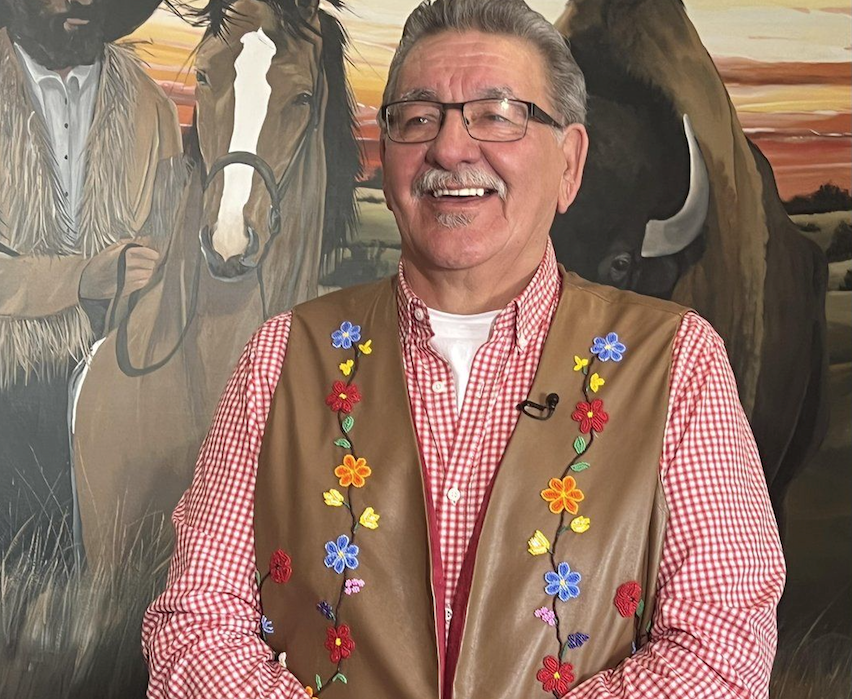Elder Norman Fleury is to join the Métis National Council’s delegation to the Vatican to meet with Pope Francis in December. Anne Lafleur, an Ile a la Crosse residential school survivor, is also part of the delegation.
The group intends to convey "the deep, lasting intergenerational trauma that residential schools inflicted upon the Métis Nation, and the need for the Church to provide reparations to the Metis Nation, including financial support for community-led healing and community rebuilding initiatives," a Métis National Council statement said.
Fleury, who is eighth generation Métis, spoke about his personal message to Pope Francis.
Q: How does it feel to be part of this delegation?
A: This doesn't happen every day. Even though I've been a Catholic for 73 years. I've been baptized, confirmed, (been) an altar boy and went to church, and I believed, and I still believe, in God.
When we deliver a united message to the Pope coming from the Métis Nation, it's most importantly (about) residential schools. But it's also based on other things.
I could see building a very solid communication and educating the Pope (by) looking at our spiritual connection that we (had with) Catholicism for many, many generations.
Q: What role does your faith play?
A: Because we were believers, we followed the rules of the Church, and what's so disappointing is that these were people that are supposed to be the representatives of God and the Creator.
Our ancestors didn't read and write. My grandfather said "the Big Book," referring to the Bible.
We took our Indigenous spirituality and Catholicism and put it together. The water has a significance for the church, but it's different for the Metis people. The fire, the candle, has a significance that's bigger for us as we build that uniqueness of who we are.
A big piece of history — that was there forever — was taken away through cultural genocide, through the residential school system. But you know what? It never worked.
That's why we're talking about going to Rome to talk to the Pope, because God said, "No, you're not going to destroy these people. These are my creation also. I created these people."
Q: What do you think you'll say to Pope Francis?
A: We're still here. That's what the Pope has to hear. You did not kill our spirit.
That's why we're still here, Holy Father. I’m still standing here with my rosary. And I'm still standing here today the way my ancestors were.
I’m still that same person. And you haven't killed us. But you've killed a lot of our children.
You're supposed to be representing the seventh in the 10 commandments that I learned: “Thou shalt not kill.”
Thou shall not do this, thou shall not do that — and you've done them all. You still have a problem: to apologize to the people that you picked on and you wanted to destroy. The Pope is the peacemaker of the world.
We're here in front of you.
The Indian Residential Schools Resolution Health Support Program has a hotline to help residential school survivors and their relatives suffering trauma invoked by the recall of past abuse. The number is 1-866-925-4419.
This conversation has been edited for length and clarity.




